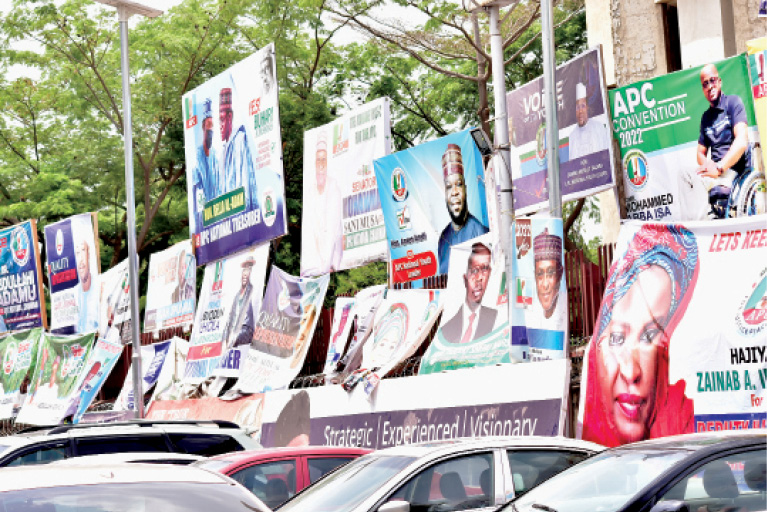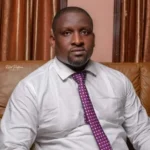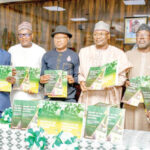With barely five months to another crucial election in Nigeria’s history, political parties are taking the stage with campaigns even as the Independent National Electoral Commission (INEC) reiterated its commitment to ensure compliance with the new electoral law.
Election is a process with an interconnected set of activities involving all stakeholders right from the pre-election phase, election day, and post-election periods, all of which affect the transparency, accountability and overall credibility of the election. The pre-election activities are crucial to the outcome of any election, as these activities could influence the outcomes. Some such activities are the Independent National Electoral Commission (INEC) preparations, political party activities, civil society organizations, and the media, amongst others.
- Insecurity: Nigeria peaceful because of imams, pastors — Cleric
- Oliseh joins Wenger, Klinsmann as World Cup technical expert
Following the publication of the final list of candidates running for the Presidential and Federal Legislative elections, campaigns by political parties and their supporters commenced in earnest in line with section 94 subsection (1) of the Electoral Act 2022.
The period of the campaign is an important time for political parties as it provides an opportunity for them to present their candidates to the electorate. It’s a crucial period where political parties inter phase with citizens, sell ideas and promises. Thus it’s usually a period soaked with emotional and verbal wars between contending political parties.
This is why most times, political party campaigns in Nigeria are often characterized by several negative factors, like attack on campaign trails, restriction in the use of the public facility usually perpetrated by the incumbent government, hate speech targeted at candidates and violence
The conversations must go beyond the mere personality, gender, tribe or religion of the candidates to the real issue bedevilling Nigeria. There must be serious conversations on how the parties and candidates will address the security issues if elected in 2023. Nigerians must ask important questions of how the country’s economy will be improved and demand a practical blueprint on how to salvage the challenges facing virtually every sector of the country.
Thus, the campaign period is not a one-way street where only the political parties dole out promises to the citizens, but also an opportunity for the citizens to engage the parties and candidates, demand the manifesto of the parties, and ask questions about how the candidates will address issues of insecurity, the economy, education, poverty, and other issues that bother the country. This is also another opportunity for citizens to document all the promises that will be made by the parties and their candidates to hold them accountable in the future.
Importantly, parties and candidates must comply strictly to all the provisions guiding political campaigns in the electoral law.
As the first beneficiaries of the votes cast on election day, political parties and candidates should engage in massive voter education and sensitize citizens on the need to vote and how to vote correctly to reduce the number of invalid votes on election day.
The media, as a critical stakeholder in the electoral process should remain upright and unbiased in their engagement with the political parties by giving all parties an equal opportunity of airtime for paid advertisements and other campaign activities. While doing this, the media should ensure their platforms are not used as a tool to violate the electoral law. Citizens should refuse to be induced by money and gift items and also, the young people should refuse to be used as political thugs but rather serve as ambassadors of peace and voter education rockstars during this period.
The 2023 elections provide a huge opportunity for all election stakeholders to get it right. Thus this is an opportunity to make their intentions clear by ensuring compliance to law from this stage of the process. Thus to hold the political parties accountable, the Independent National Electoral Commission (INEC), Nigerian Police and the Economic and Financial Crimes Commission (EFCC) should track the compliance of the political parties with the campaign spending limit provided by law.
Anthonia Onda is a Senior Programme Officer at Yiaga Africa

 Join Daily Trust WhatsApp Community For Quick Access To News and Happenings Around You.
Join Daily Trust WhatsApp Community For Quick Access To News and Happenings Around You.


